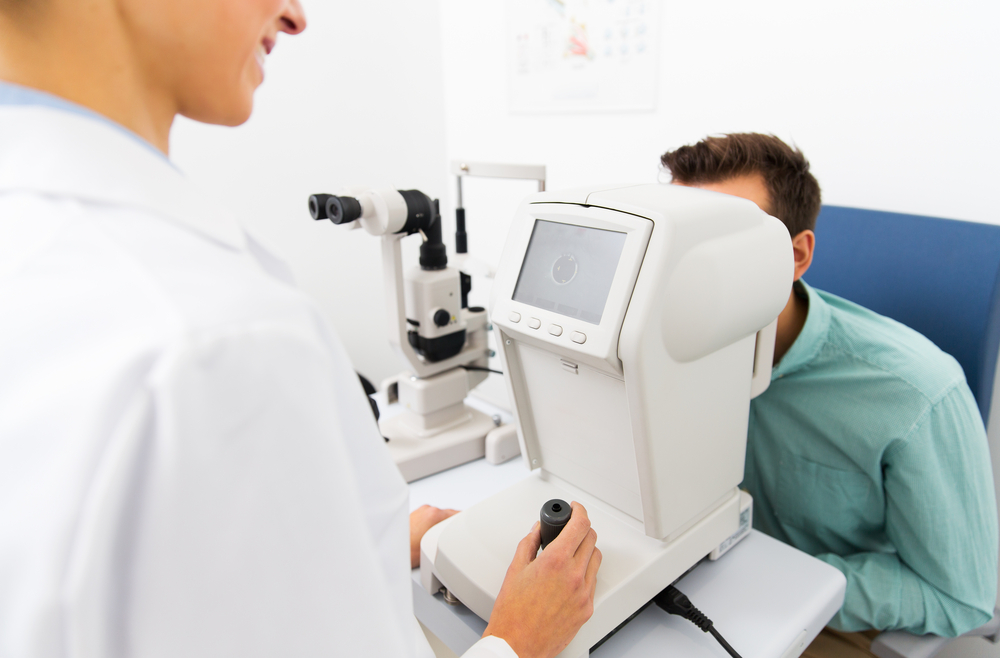
When was the last time you had your eyes checked? For many people, a vision screening at school or work is the only eye checkup they’ve ever experienced. While these quick screenings can identify some obvious vision issues, they don’t tell the whole story about your eye health. Relying solely on a vision screening could mean missing early warning signs of more serious eye conditions.
Understanding Vision Screenings
A vision screening is a basic test to identify individuals who may have vision problems. These are usually brief and performed by school nurses, or technicians - not by an eye doctor. Screenings typically measure how well you see at a distance, using an eye chart, and may flag obvious issues like nearsightedness or farsightedness. However, screenings are not meant to diagnose eye conditions or ensure eye health. They’re simply a first step, not a substitute for a complete eye exam.
Why Vision Screenings Fall Short
Vision screenings have important limitations:
• Miss Subtle Problems: Screenings may miss issues like early glaucoma, retinal disease, or subtle binocular vision problems that can impact learning or cause headaches.
• Don’t Check Eye Health: Most screenings only check how well you see—not the overall health of your eyes or early signs of disease.
• No Personalized Care: Only an eye doctor can offer a customized plan based on your eye health, lifestyle, and family history.
What Is a Comprehensive Eye Exam?
A comprehensive eye exam is a thorough evaluation performed by an optometrist. Unlike a simple vision screening, a comprehensive exam goes well beyond just measuring how clearly you can see.
During this exam, your eye doctor will check your visual acuity, or how sharp your vision is, using specialized charts and tests. They’ll also assess how well your eyes work together and how efficiently they focus. If you need corrective lenses, your prescription for glasses or contact lenses will be precisely measured.
Beyond these basic tests, a comprehensive eye exam includes a careful evaluation of your eye health. Your doctor will look for early signs of eye conditions such as glaucoma, cataracts, diabetic retinopathy, and macular degeneration. Additionally, comprehensive exams can reveal signs of systemic health issues, like high blood pressure or diabetes, which sometimes show up first in the eyes. These exams utilize advanced technology and techniques to provide a complete and detailed picture of your vision and overall eye health.
The Risks of Skipping Comprehensive Exams
Serious eye diseases often develop with little or no symptoms in their early stages. Glaucoma, for example, is known as the “silent thief of sight” because vision loss can occur before you notice a problem. By the time symptoms appear, irreversible damage may have already occurred.
Comprehensive eye exams allow for early detection and treatment, which is crucial for preserving vision. Many systemic conditions, such as diabetes and high blood pressure, can also be detected during an eye exam - even before other symptoms arise.
Who Needs Comprehensive Eye Exams?
Children need regular exams to ensure proper vision development and support academic success. Adults should also have their eyes checked each year to maintain healthy vision and catch any issues early, when treatment is most effective. Even if you have perfect vision, annual comprehensive exams are vital to monitor your eye health and detect hidden problems before they progress.
Some people may need more frequent eye exams, especially those with existing eye conditions, a family history of eye disease, or certain health issues like diabetes. Your eye doctor can recommend how often you should be seen based on your unique needs.
Take Charge of Your Eye Health Today
Vision screenings play an important role in public health, but they are not a replacement for comprehensive eye exams. Protecting your sight means scheduling regular visits with an eye care professional who can thoroughly assess your vision and eye health.
Schedule a comprehensive eye exam with Eye Focus Northwest to ensure your eyes are healthy for years to come. Visit our office in Salem or Tigard, Oregon. Call (971) 808-2640 or (971) 202-1932 book an appointment today.







